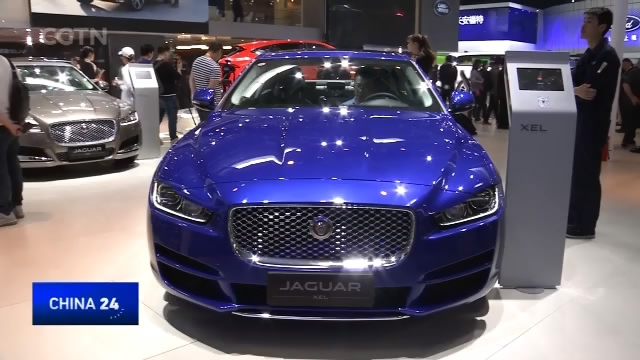
21:20, 30-Apr-2018
Beijing Auto Show 2018: More open auto market to accelerate competition
02:49

Times are changing for China's auto market. Beijing will phase out joint-venture restrictions for foreign automakers in five years, while import tariffs will soon be cut. How will these alterations redefine competition in the world's largest auto market? Xia Cheng reports from this year's Beijing Auto Show.
"In China, for China", a catch phrase among auto executives at the Beijing auto show.
And with policies for wider access, there will be "more in China, for more of China".
When full ownership is no longer a no-go, the question is whether to go solo or expand partnerships.
Wider market access means more competition--for example, the new breed of automakers claiming their internet mindset helps capture the digital generation.
XIA CHENG Tesla -- everyone's benchmark is here. It is expected to set up a fully owned China factory, as the country opens up its auto sector-- that is, if Tesla can get over its current cash flow and supply snags.
Those are not top concerns for traditional automakers--they don't rely on rounds of funding from venture capitalists, and their long-term operations have built up strong supply chains.
They are more pressured on winning the tech race.
Jaguar Land Rover is teaming up with five Chinese companies in fields such as telecommunications, mapping, and autonomous driving.
RALF SPETH CEO, JAGUAR LAND ROVER As for premium brands selling only imported cars in China, the upcoming tariff cut is welcome move for dealers -- who may not have to pass on the savings to consumers because demand is so strong.
For now, auto imports and exports are only a fraction of total sales, auto executives do not see material impact from the China-US trade tensions.
The pressure on Chinese own auto brands is real--but if competition drives better quality of products, and diversity gets consumers' adrenaline going, a more mature China auto market would move to the inside track of mobility. XIA CHENG, CGTN, BEIJING.

SITEMAP
Copyright © 2018 CGTN. Beijing ICP prepared NO.16065310-3
Copyright © 2018 CGTN. Beijing ICP prepared NO.16065310-3